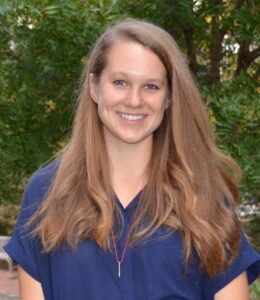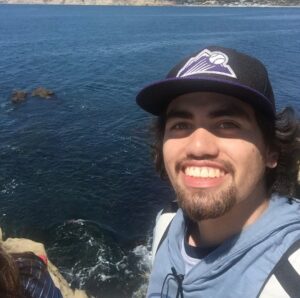2018 Seed Grant Awardees Abstracts
Pallavi Gupta
Department of Geography
The seed grant is an opportunity for her to engage with young women from marginalized communities in Hyderabad. Pallavi through this participatory research grant will co-create narratives on identity, discrimination, and access to opportunities—employment or otherwise—with young women. In doing so, the project aims to work with these young women to articulate the challenges that arise due to the interaction between identity and gender. As a geographer, Pallavi will approach these questions with a spatial lens: asking how cities and workplaces can be sites of exclusion based on uneven citizenship, identity, and gender. The project design and implementation are based on mutual dialogue with the community organization, Shaheen Women´s Resource and Welfare Association.
Francesca Sorbara
Department of Anthropology
A fragile peace is presently at stake in Colombia, and a complex public political debate over transitional justice is raging in the Parliament and among public intellectuals.
In the Cauca region, the ‘post-accord’ proves to be increasingly challenging as the scars and the conflicts of the past perpetuate boiling tensions in the present.
My project explores how the transitional justice system and the political economy of the post-accord era are shaping the transition of demobilized FARC ex-combatants, especially the indigenous men and women returning to their communities.
In the first phase of this project, I will engage with localized strategies of citizenship, appropriation and resilience in specific sites of ov erlapping sovereignty and governmentality: the ETCR – Training and Reinstatement Spaces – and the indigenous receiving communities. State apparatuses, the FARC’s shifting political discourse, indigenous politics and cosmology are entangled into this conundrum of overlapping intimate, social and political transformations.
erlapping sovereignty and governmentality: the ETCR – Training and Reinstatement Spaces – and the indigenous receiving communities. State apparatuses, the FARC’s shifting political discourse, indigenous politics and cosmology are entangled into this conundrum of overlapping intimate, social and political transformations.
The goal of my wider research is to accompany the current trajectories of a few returning ex-combatants and understand how the demobilized indigenous guerrillas, and the Nasa recipient communities, organize themselves and make sense of their new lives in the present transition.
I will focus on listening to the self-narratives and stories of indigenous demobilizing guerrillas transitioning in the ETCR in Northern Cauca region. I will focus on questions around their memories, political and personal projects, and changing subjectivities, and I will also explore how indigenous authorities and the local community are preparing to receive the returning former combatants and comuneros, community members
Katherine H. LeMasters
UNC Gillings School of Public Health
 The overall aim of this proposed partnership and project is to understand and strengthen the perinatal health and well-being of American Indians in the Lumbee tribal community in Robeson County, North Carolina. Building on our formative work, we will address three aims. First, we will continue building a community advisory board (CAB) to support and guide this project. Second, we will build our understanding of how the community experiences the perinatal period and what their perinatal health concerns are. To do this, we will identify community participants (i.e., mothers, grandmothers) with the guidance of the CAB and will use photovoice as our participatory methodology. Third, we will collaboratively develop action steps to address the identified perinatal health needs of the community. We will host a community forum via a talking circle where our research team of participants, the CAB, and university-based investigators will display the photographs and discuss the findings from the photovoice project. Ideas generated during the forum will be used to collaboratively formulate action steps for an intervention to achieve perinatal health equity.
The overall aim of this proposed partnership and project is to understand and strengthen the perinatal health and well-being of American Indians in the Lumbee tribal community in Robeson County, North Carolina. Building on our formative work, we will address three aims. First, we will continue building a community advisory board (CAB) to support and guide this project. Second, we will build our understanding of how the community experiences the perinatal period and what their perinatal health concerns are. To do this, we will identify community participants (i.e., mothers, grandmothers) with the guidance of the CAB and will use photovoice as our participatory methodology. Third, we will collaboratively develop action steps to address the identified perinatal health needs of the community. We will host a community forum via a talking circle where our research team of participants, the CAB, and university-based investigators will display the photographs and discuss the findings from the photovoice project. Ideas generated during the forum will be used to collaboratively formulate action steps for an intervention to achieve perinatal health equity.
Sonny Kelley
Department of Communications
Along with my community liaison, Ms. Shauna Hopkins, the Coordinator of Fayetteville Urban Ministry’s Find-A-Friend program, and 72 youth participants, I executed the My Life Matters Youth Participatory Action project between June and August of 2016. With the helpnof the GCPR Seed grant, I conducted weekly performance-based self-expression workshops with 72 youth between the ages of 7 and 18. This work culminated in a public presentation of some of the work (including spoken word, original poetry, stories, song, dance and rap) before an audience of over 50 local community members. The Mayor of Fayetteville, NC was so impressed that he invited three of our middle school performers to  present their inspirational poem and song at the Fayetteville City Council meeting on September 12th. At the request of my community liaison, Ms. Hopkins, I began a short documentary project with the help of a local videographer. This project is currently in the editing phase, and will be a tool for Ms. Hopkins to express the kind of community impact that Find-A-Friend and its youth can, and do, make. I returned to focus my efforts on 30 adolescents during the summer of 2017. Together, we collaborated on a full theatrical production, featuring the photography, poetry, stories, dance and song of the adolescent participants. Over 20 of our youths have rehearsed their original production entitled Our ‘Ville, a play about how teens confront and counter the different forms of violence that challenge them each day.
present their inspirational poem and song at the Fayetteville City Council meeting on September 12th. At the request of my community liaison, Ms. Hopkins, I began a short documentary project with the help of a local videographer. This project is currently in the editing phase, and will be a tool for Ms. Hopkins to express the kind of community impact that Find-A-Friend and its youth can, and do, make. I returned to focus my efforts on 30 adolescents during the summer of 2017. Together, we collaborated on a full theatrical production, featuring the photography, poetry, stories, dance and song of the adolescent participants. Over 20 of our youths have rehearsed their original production entitled Our ‘Ville, a play about how teens confront and counter the different forms of violence that challenge them each day.
While this project is approaching its third year, we are continuing to develop a documentary film and creative expression performances based upon the Participatory Action Research model. As the needs and concerns of marginalized black youth in Cumberland County change over time, our goal is for the My Life Matters project to be there helping youth to find and share their voice as they play an active role in analyzing the issues and advocating for solutions that are best for themselves and their community. Furthermore, we have just begun to delve into the insights that these youths and their families may provide to policy makers and practitioners with regard to the causes, effects and possible solutions to the School to Prison Pipeline.
Carlos Serrano
Department of Geography

The “Southern Slice of Heaven” has a nice ring to it. From the prestige of UNC to having the Chapel Hill-Carrboro public school district consistently ranked as a top school district in the state of North Carolina, the town’s motto can ring true for some. However, these dominant narratives have left out racial and class contradictions that contribute to unequal realities for the town’s black and brown residents. Chapel Hill-Carrboro Public Schools (CHCCS) is one of the top districts in the state, but also has the second largest Black and white achievement gap in the country, and the fifth largest between Latinx and white students (achievement gaps refer to the disparities in academic performance or educational attainment). These disparities are also evident in disciplinary actions: during the 2015-2016 school year, Black students in the district (only 11 percent of the district’s enrollment) were 10 times more likely to get a short-term suspension in comparison to their white classmates. In this project, I will work in collaboration with the Campaign for Racial Equity in Our Schools (CFRE), a local community group formed in response to the educational injustices that Black and Latinx students and families face in the district. I will record oral histories and collect audio-visual material from students, teachers, parents, and community organizers to examine how racial capitalism has impacted the educational experiences, daily life, and political organizing in the Chapel Hill-Carrboro area.